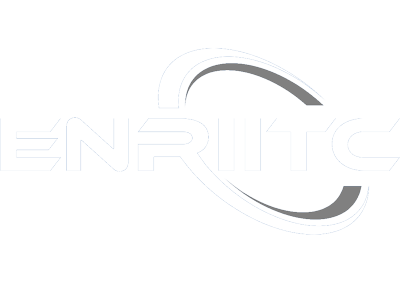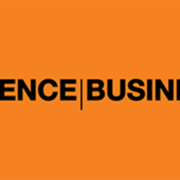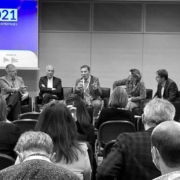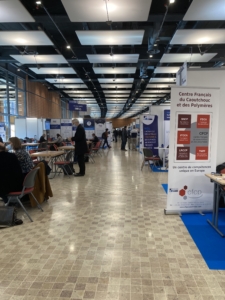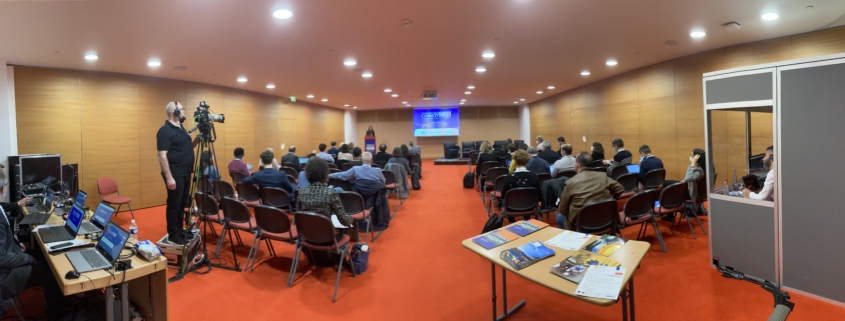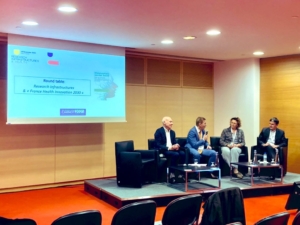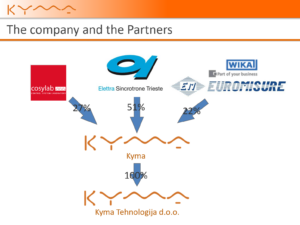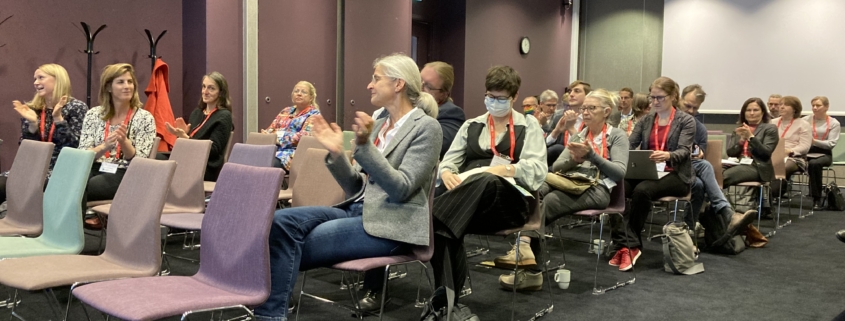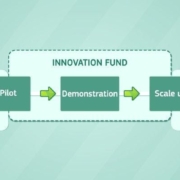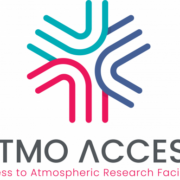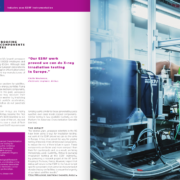How exciting it was to take ENRIITC live for the first time since the start of the project!
ENRIITC joined the TechConnect Europe Innovation Conference in Malmö, Sweden from 15-17 November 2021. Bringing together participants from all over the world and covering a broad scientific domain (energy and environment, physics, health and food, etc.) this was a great opportunity to meet our project partners, Associates, and community members as well as to open discussions with our stakeholders, and envisage future collaborations.
But the very best part? It was to be back to onsite events, of course!
Since January 2020, the ENRIITC network has grown exponentially and brought amazing results all thanks to a strong and consistent, virtual engagement from the community, but one has to admit that the live interactions were deeply missed throughout the last 18 months!
With this very first edition in Europe, TechConnect aimed at bringing together top applied research and early-stage technologies from universities, labs and start-up with industry and investment end-users and prospectors. Due to its nature, the 3-day conference was an excellent place for ENRIITC to engage with industry and present the project and results to the participants, which included research infrastructures (RIs), industry liaison officers (ILOs), industry representatives, funding agencies, European networks and other important stakeholders.
-
Day 1: The Kick-off & ENRIITC Booth
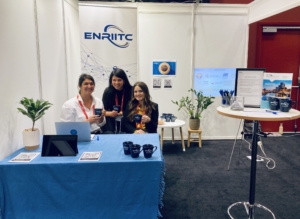
From left to right: Anne-Charlotte Joubert, ENRIITC project coordinator and Grant Officer at ESS, Chiara Facoetti, ENRIITC Communications Manager at ESRF, and Madison Bell, ENRIITC Administrator and Grant Support Staff at ESS, managing the ENRIITC booth.
ENRIITC was present from the start of the event with a booth at the TechConnect Europe Innovation Exhibition.Over the two-days of exhibition, close to 100 participants visited the ENRIITC booth with high interest in the project bringing up many possibilities to further engage.
A slideshow was continuously projected onto one of the booth walls bringing attention to the passing visitors. This gave the opportunity to open discussions, give general information about the project including the consortium and Associate members, as well as presenting our recent and ongoing activities such as the #ENRIITCyourCoffee virtual networking meetings, the ENRIITC your Knowledge webinar series, the upcoming ENRIITC your Industry Outreach pilot brokerage events, and more. The presentation can be can downloaded here.
After an eventful and inspiring first day, the 22 ENRIITC members attending TechConnect Europe re-grouped at MJ’s restaurant in Malmö for a networking diner. This was the first occasion since the launch of the network to meet physically, mingle with one another, debrief from the conference and enjoy a delicious dinner together while exchanging on ongoing activities, and future collaborations in a convivial and cosy environment. Although having met virtually numerous times throughout the project’s nearly two-year lifespan, many of the members had never physically met until this day. Getting to (safely) bump elbows with our fellow members and colleagues has been long-awaited and felt like a pivotal moment for the project and its sustainability.
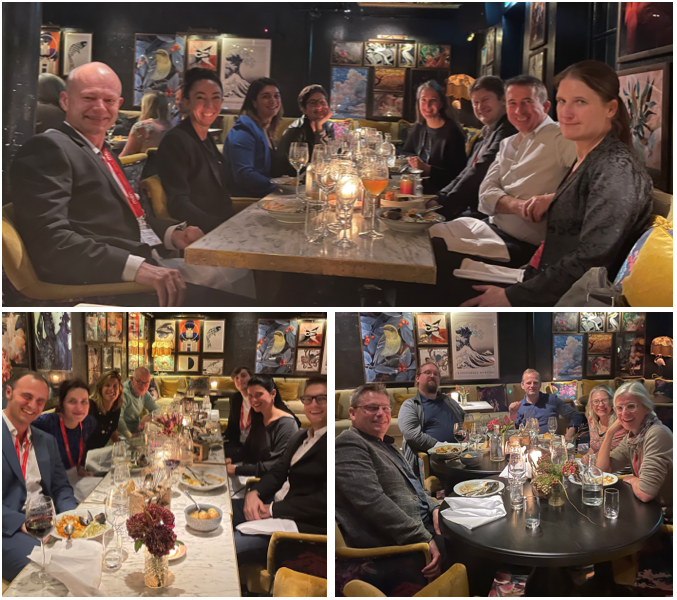
22 members of the ENRIITC Network gathered together on the evening of 15 November for a networking dinner.
-
Day 2: Closing the Gap between Industry and Research Infrastructures
The second day of the three-day conference was the most critical for us, as it was our first ENRIITC pilot brokerage event. A key note session on the “Visions and Lessons Learned for Tech and Connect at and around Large-scale Facilities” kicked-off the busy day highlighting the importance to work together with all the stakeholders.
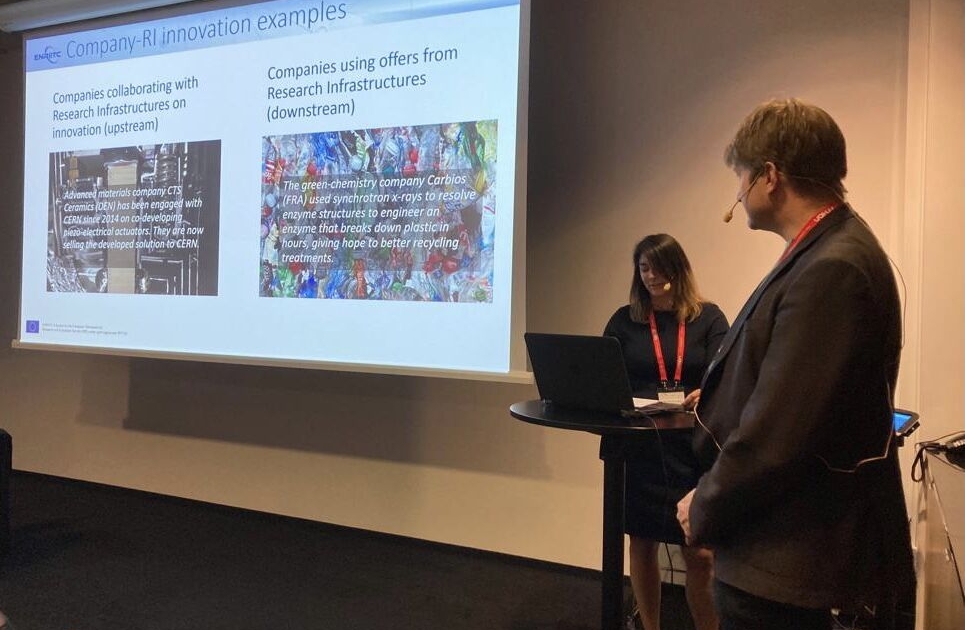
Anne-Charlotte Joubert (ENRIITC project coordinator and Grant Officer at ESS) and Nikolaj Zangenberg (ENRIITC WP3 leader and Centre Manager at DTI) ) presenting the ENRIITC project to the audience.
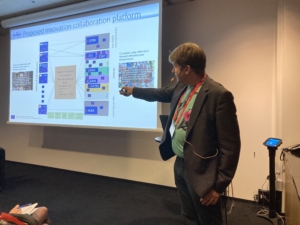
Nikolaj Zangenberg, Centre Manager at DTI, presenting the Central Innovation and Industry Services Support Hub.
ENRIITC project coordinator, Anne-Charlotte Joubert, from the European Spallation Source ERIC, opened the “Big Science Facilities Summit: Pan-European Facilities for Industry Research I” together with Nikolaj Zangenberg, innovation manager at DTI, and ENRIITC WP3 leader.
Together, they presented ENRIITC focusing on how the project can help bridging the gap between research infrastructures and industry.
They demonstrated the high economic impact RIs can have, and the support they can bring in tackling key societal challenging. The presentation concluded with an emphasis on RIs being a key partner to industry for innovation, and being fully integrated in the innovation ecosystem. You can download their presentation here.
The Big Science Facilities Summit continued with 2 lunch workshops, both lead and organised by ENRIITC:
- Big Science Lunch Workshop I: Accelerating Innovation through Europe’s Research Facilities: Access, funding, expertise and more. Chaired by Jimmy Binderup Andersen (European Spallation Source ERIC) & Valentina Venturi (HEPTech & ENRIITC Associate member)
- Big Science Lunch Workshop II: Bridging Research with Industry: engaging through intermediary service providers. Chaired by Anna Hall (Big Science Sweden & ENRIITC Consortium member)
Bringing together a broad range of stakeholders, including RIs, ILOs, and industry, both workshops brought up the importance of collaboration, building trust and getting to know each other to engage more systematically for the development of innovation and economic growth. The need for such activity was clear, and the engagement of the participant was exceptional!
The day continued with many inspiring presentations from RI representatives giving concrete examples of collaborations and engagements of RIs with industry and concluded with two case studies: one from Ferring Pharmaceuticals giving its insights on dealing with Big Science facilities and one from Finden Ltd. presenting the interest of using chemical imaging to understand the loss of remanence of commercial batteries.
Our audience (ENRIITC Network plus new stakeholders) participating into ENRIITC presentation at Big Science Facility Summit.
A bus tour at the facilities, MAX IV and ESS, was a great opportunity to conclude this 3-day event, showing the participants concrete examples of what a research infrastructure is and what it can do to enable scientific breakthrough and technological development.
Overall, the conference was a huge success and ENRIITC benefited from being a part of it in numerous ways. It was a meeting spot for our members and a place to promote our achievements and activities to our stakeholder, it connected us with other innovators, organisations, initiatives and communities, and gave us new ideas and possible directions for sustaining our community. Additionally, and arguably most importantly, it gave ENRIITC a firm promotional platform for our continuously growing network which could in turn help to sustain our pan-European Network after the completion of the project at the end of 2022.
We are looking forward to next year’s TechConnect Europe Conference to meet you there again, as well as new opportunities to expand our community!
For those who were there, please share your feedbacks, as we would love to hear from you! Just send us an email to enriitc@ess.eu and help us to improve our future events.
